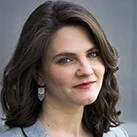Cambridge Disinformation Summit (2025)

23 Apr 2025
24 Apr 2025
25 Apr 2025
Time to be confirmed
Times are shown in local time.
By invitation only

University of Cambridge
Cambridge
United Kingdom
Research on the Efficacy of Disinformation Interventions
The 2025 Cambridge Disinformation Summit is designed to convene global thought leaders to discuss research regarding the efficacy of potential interventions to mitigate the harms from disinformation.
Papers were selected by an interdisciplinary Scientific Committee.
Research might consider policy, regulatory, enforcement, audit, fact-checking, sociological, psychological, religious, algorithmic, financial, or other frameworks for interventions, and should consider balancing free speech and other fundamental human rights.

Programme
Wednesday 23 April 2025
09:00 – 09:30
Welcome and agenda
09:30 – 10:30
Opening keynote: global nature of information disorder
Eliot Higgins, founder and CEO of Bellingcat
10:30 – 11:00
Break
11:00 – 12:45
Research workshop 1, informing audience
Effects of cognitive and socio-affective inoculation interventions on impressions of mock political candidates, Michael S. Cohen, University of Chicago
Transparency is not enough: Warning people that they are being microtargeted fails to eliminate persuasive advantage, Fabio Carella, University of Bristol
The Cambridge Online Trust & Safety Index (COTSI): Benchmarking data to inform interventions against coordinated inauthentic behaviour, Anton Dek, University of Cambridge
12:45 – 13:45
Lunch
13:45 – 15:00
Research workshop 2, platform moderation
Determinants and capital market consequences of disinformation: Evidence from user-requested content moderation on social media platforms, Vicki Wei Tang, Georgetown University
The systemic impact of deplatforming on social media, Max Falkenberg, City University of London.
15:00 – 15:30
Break
15:30 – 17:00
Crypto influencers panel discussion
To understand how crypto influencers grow, engage and potentially exploit their followers.
- Lorena Billi, Founder, Furt’her
- Maximilian Brichta, University of Southern California Annenberg School for Communication and Journalism
- Chris Temple, Director and co-founder, Optimist
17:00 – 18:45
Open
18:45 – 21:30
Documentary screening with Director Q&A: This is not financial advice
Thursday 24 April 2025
08:30 – 08:45
Welcome and agenda
08:45 – 10:30
Research workshop 3, message interventions
Moral deliberation reduces people’s intentions to share headlines they know are “Fake News”,
Daniel A. Effron, London Business School
Certifiably true: The impact of self-certifications on misinformation, Marshall Van Alstyne,
Boston University
Distancing judgment from belief: A novel crowdsourcing method for unbiased fact-checking of scientific news, Yu Ding, Stanford University
10:30 – 10:45
Case study: efficacy of critical thinking and media literacy education
Penny Roche, Literacy Lead and Secondary Years Programme Coordinator, Landmark International School
10:45 – 11:15
Break
11:15 – 12:15
Managing threats to research academics panel discussion
To understand the nature of, and how to manage, threats to research academics. These threats might include online harassment, frivolous freedom of information requests or litigation inquiries, or other threats to academic independence.
- Emma Briant, Visiting Professor, University of Notre Dame
- Alice Marwick, Director of Research, Data & Society, Center for Information, Technology and Public Life, University of North Carolina
- Mutale Nkonde, Founder, AI for the People, PhD student at Cambridge University in the Department of Digital Humanities
- Dr Julia Ebner, School of Anthropology & Museum Ethnography
12:15 – 13:15
Lunch
13:15 – 14:15
Managing disinformation threats to democracies
- Alexander Vindman, former Director for European Affairs for the US National Security Council
- Gillian Tett, Provost of King’s College, Cambridge and member of the Financial Times editorial board
14:15 – 15:15
Influence campaigns to support male supremacism, undermine democracy, and facilitate authoritarian resistance
To understand how influencers leverage information campaigns to engage male grievance, empower male supremacist beliefs, undermine democracy, or coordinate civil collective action against authoritarian power.
- Samuel Woolley, William S. Dietrich II Endowed Chair in Disinformation Studies and Associate Professor of Communication, University of Pittsburgh
- Ashley Anderson, Assistant Professor of Political Science at the University of North Carolina
- Gillian Tett, Provost of King’s College, Cambridge and member of the Financial Times editorial board
- Alex DiBranco, Executive Director and Co-Founder of the Institute for Research on Male Supremacism.
15:15 – 15:45
Break
15:45 – 17:00
Legislation of disinformation interventions panel discussion
To understand how global legislators identify which interventions to propose as laws, how they weigh costs and benefits, how they garner public trust in the proposed interventions, and how they address concerns about potential legislative overreach.
- Federal Legislator, Europe
- Former Federal Legislator, England
- Federal Legislator, Wales
- Federal Legislator, Brazil
Nora Benavidez, Senior Counsel and Director, Digital Justice & Civil Rights at Free Press.
17:00 – 18:30
Open
18:30 – 19:00
Pre-dinner drinks reception
19:00 – 19:15
Dinner seating
19:15 – 20:15
Keynote dinner talk: social norms and harassment
- Deborah Prentice, Vice Chancellor, University of Cambridge
- Managing threats in disinformation work
- Nina Jankowicz, CEO of The American Sunlight Project and former Executive Director for the Disinformation Governance Board, U. S. Department of Homeland Security
- Yoel Roth, Non-Resident Scholar at the Carnegie Endowment for International Peace
- Marianna Spring, Disinformation and Social Media Correspondent, BBC
20:15 – 21:30
Dinner served
Friday 25 April 2025
09:00 – 10:15
The Art of Truth: Arts, Science, and the potential of Creative Media Literacy
This session explores how arts and creative media—when designed with creativity and intent—can help build media literacy and resilience against disinformation. Experts have seen the power of games to inoculate and teach media literacy skills, but there’s growing interest in content that is entertainment-first and media literacy-second. The goal: experiences people want to play for their own sake, with learning embedded subtly in the narrative.
But this approach raises challenges. If the media literacy is less explicit, how do we test its impact? And how do we design games that are meaningful, artful, and culturally safe – especially in a gaming world marked by toxicity and past controversies?
This session invites open dialogue around these questions. The University of the Arts London’s Storytelling Institute shares insights from two years of collaboration with psychologists and disinformation experts, including recent project On Their Terms supported by the European Media and Information Fund. And we hear about Vocalize, a fictional voice over agency teaching about the dangers of voice cloning manipulation, being presented alongside Sage & Jester at the Hay Festival with Stephen Fry – offer reflections on the creative joys and complexities of working across disciplines.
Join us to explore how we move this promising but complex space forward – where play meets purpose.
- Francesca Panetta, Director AKO Storytelling Institute
- Natasha Freedman, Producer, UAL AKO Storytelling Institute
- Melisa Basol, Social Psychologist and Founding Director of Pulse
- Richard Sherriff, Games academic and designer
10:15 – 10:45
Break
10:45 – 12:15
Disarming disinformation in the media: What works, what doesn’t and why?
Moderated by Madhav Chinnappa, Former Director of News Ecosystem Development, Google
Chatham House Rule – by invitation only
Hosted by Thomson Foundation
10:45 – 12:45
Research workshop
Fostering Misinformation Literacy Through Class Visits: Children and Adolescents’ Views on Journalists as Teachers, Larissa Leonard, LMU Munich
Addressing Spanish and Vietnamese language disinformation narratives: differential data and interventions during the 2022 US midterm elections, Sarah Nguyen, University of Washington.
Assessing Political Bias and Value Misalignment in Generative Artificial Intelligence, Fabio Motoki, University of East Anglia
12:45 – 12:15
Health policy and communication roundtable
Chatham House Rule – by invitation only
Hosted by leadership from the World Health Organisation and Scottish NHS
12:15 – 13:15
Lunch
13:15 – 14:45
The business of disinformation mitigation: promising directions and critical barriers in establishing an innovative tech ecosystem
Moderator: David Gordon, Affiliate, Minderoo Centre for Technology and Democracy
- Maria Amelie, CEO, Factiverse
- Lyric Jain, CEO, Logically
- Itai Yonat, CEO, Intercept
- Rafi Mendelsohn, Chief Marketing Officer, Cyabra
- Dave Aron, Distinguished VP Analyst, Gartner
Hosted by the Minderoo Centre for Technology and Democracy
13:15 – 14:45
Research workshop: regional issues 1
Exploring disinformation regulation strategies in Africa: mapping the challenges and opportunities, Grace Itumbiri, University of Cape Town.
Warning! Lessons on prebunking against emotionally manipulative information in Tunisia, Benedek Paskuj, BBC Media Action.
Repairing broken windows: A framework to counter disinformation and extremism in US law enforcement, Kenneth Syring, Georgetown University.
13:15 – 14:45
Legislator policy roundtable: can tech power and influence be regulated?
Chatham House Rule – by invitation only
14:45 – 15:15
Break
15:15 – 16:45
To be determined
15:15 – 16:45
Research workshop: regional issues 2
Some evidence on Digital Resilience, Gisella Lomax, UNHCR
Talk held under Chatham House Rule
Efficacy of Open Source Investigation to Counter Disinformation with Regional Case Study, Ben Strick
Talk held under Chatham House Rule.
Evaluating the Impact of Scalable Media and Artificial Intelligence Literacy Interventions with Indonesian and American Audiences, Tim Weninger, University of Notre Dame
15:15 – 16:45
Roundtable discussion: threat assessment and resilience
Chatham House Rule – by invitation only
Scientific Committee members
Henry Ajder
Founder, Latent Space and Intellectual Forum
Senior Research Associate, University of Cambridge Jesus College
Latent Space
Brad Badertscher
Deloitte Professor of Accountancy
University of Notre Dame Mendoza College of Business
Matthew Baum
Marvin Kalb Professor of Global Communications
Harvard Kennedy School
Beth Blankespoor
Professor of Accounting and Marguerite Reimers Endowed Faculty Fellow
University of Washington Foster School of Business
Emma Briant
Associate Professor of News and Political Communication
Monash University
Hui Chen
Professor of Accounting
University of Zurich Department of Business Administration
Yonca Ertimur
Senior Associate Dean for Faculty
Tandean Rustandy Esteemed Professor
University of Colorado Leeds School of Business
Stefan Feuerriegel
Professor of Artificial Intelligence
Head of the Institute of Artificial Intelligence in Management
LMU Munich School of Management and Faculty of Mathematics, Informatics, and Statistics
Todd Henderson
Michael J Marks Professor of Law
University of Chicago Law School
Alan Jagolinzer
Professor of Financial Accounting
Co-Director of the Cambridge Centre for Financial Reporting and Accountability
University of Cambridge Judge Business School
Jessica Montgomery
Executive Director, AI@Cam
Executive Director of the Cambridge Accelerate Programme for Scientific Discovery
University of Cambridge Department of Computer Science and Technology
Gina Neff
Executive Director, Minderoo Centre for Technology and Democracy
University of Cambridge Minderoo Centre for Technology and Democracy
Safiya Noble
David O Sears Presidential Endowed Chair of Social Sciences
Professor of Gender Studies, African American Studies, and Information Studies
University of California at Los Angeles School of Education and Information Sciences
Daniel Ralph
Professor of Operations Research
Director of the Centre for Risk Studies
University of Cambridge Judge Business School
RA Rogers
Professor of New Media and Digital Culture
University of Amsterdam Faculty of Humanities
Yoel Roth
Vice President Trust and Safety
Match Group
Sunita Sah
Professor of Management Studies
Cornell University SC Johnson College of Business
Jake Shapiro
Professor of Politics and International Affairs
Princeton University School of Public and International Affairs
Tali Sharot
Professor of Cognitive Neuroscience
University College London Affective Brain Lab
Eric So
Sloan Distinguished Professor of Global Economics and Management
Massachusetts Institute of Technology Sloan School of Management
Kate Starbird
Associate Professor of Human Centered Design and Engineering
University of Washington Department of Human Centered Design and Engineering
David Stillwell
Professor of Computational Social Science
Director of the Psychometrics Centre
University of Cambridge Judge Business School
Dan Taylor
Arthur Andersen Professor of Accounting
Director of the Wharton Forensic Analytics Lab
University of Pennsylvania Wharton School
Sander van der Linden
Professor of Social Psychology in Society
University of Cambridge Department of Psychology
Regina Wittenberg Moerman
Accounting Circle Professor of Accounting
University of Southern California Marshall School of Business
Dinner keynote introduction: “Social Norms and Harassment”
Deborah Prentice
Vice-Chancellor, University of Cambridge
Professor Deborah Prentice became the University of Cambridge’s 347th Vice-Chancellor on 1 July 2023.
An eminent psychologist, Professor Prentice carried out her academic and administrative career at Princeton University, which she first joined in 1988. She rose through the academic ranks and took on administrative responsibilities of increasing scope, chairing the Department of Psychology for 12 years, serving as Dean of Faculty for 3 years, and then serving 6 years as Provost, with primary responsibility for all academic, budgetary, and long-term planning issues.
Her academic expertise is in the study of social norms that govern human behaviour – particularly the impact and development of unwritten rules and conventions, and how people respond to breaches of those rules. She has edited 3 academic volumes and published more than 50 articles and chapters, and she has specialised in the study of domestic violence, alcohol abuse and gender stereotypes.
Keynote speakers
Nina Jankowicz
CEO, The American Sunlight Project
Adjunct Professor, Syracuse University Maxwell School of Citizenship and Public Affairs
Nina Jankowicz is the CEO of The American Sunlight Project, and an adjunct professor at the Syracuse University Maxwell School of Citizenship and Public Affairs.
In 2022, Nina was named by President Biden’s administration as the Executive Director for the Disinformation Governance Board, US Department of Homeland Security. Nina advises many policy institutions and is a prolific author for prominent outlets like the New York Times, The Washington Post, and The Atlantic. She is also the author of “How to Lose the Information War: Russia, Fake News, and the Future of Conflict”.
In naming her one of the “100 Most Influential People in AI 2023”, Time Magazine reported that “hours into her appointment, [Nina] became the target of a sustained disinformation campaign herself… trolls on the internet waged continuous attacks that included allegations that she was transgender and infertile. Prominent Republicans and Fox News… derisively dubbed the board a ‘ministry of truth’. Jankowicz eventually resigned, and the US government disbanded the board just 3 weeks after it was first announced. Yet the attacks continued…[including] deepfake porn videos featuring her official US portrait.”
Yoel Roth
Vice President of Trust and Safety, Match Group
Yoel Roth is the Vice President of Trust and Safety at Match Group, a Nonresident Scholar at the Carnegie Endowment for International Peace, and the Knight Visiting Scholar at the University of Pennsylvania Annenberg School for Communication.
Yoel previously served as the Head of Trust and Safety at Twitter before and during that platform’s transition to new ownership. Yoel penned a late-2023 essay in the New York Times that documented how politically-charged responses to his work at Twitter incited significant personal security concerns—and represent a strategic intervention against online trust and safety efforts.
“Following the violence of Jan. 6, 2021, I helped make the call to ban [the former U.S. President Trump’s] account from Twitter altogether… Backed by fans on social media, Mr. Trump publicly attacked me… Private individuals — from academic researchers to employees of tech companies — are increasingly the targets of lawsuits, congressional hearings and vicious online attacks… [for] their desired effect: universities are cutting back on efforts to quantify abusive and misleading information spreading online. Social media companies are shying away from making… difficult decisions.”
Marianna Spring
Disinformation and Social Media Correspondent, BBC
Marianna Spring is the BBC’s first disinformation and social media correspondent and an award-winning journalist. She presents podcasts and documentaries investigating disinformation and social media for BBC Radio 4 podcasts, as well as for BBC Panorama and BBC Three. She is also one of the presenters of the BBC’s Americast podcast. In 2022, she was named the British Press Guild’s Audio Presenter of the year and Royal Television Society Innovation winner. Her first book, Among the Trolls: My Journey Through Conspiracyland, was published in 2024 by Atlantic.
Opening keynote: “Global Nature of Information Disorder”
Day 2 keynote: “Managing disinformation threats to democracies”
Alexander Vindman
Former Director, European Affairs for the US National Security Council
Call for papers
Thank you for those who submitted papers for review.
The Call for papers window has now closed.








